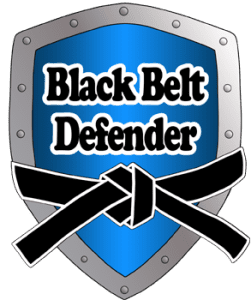
free shipping on orders over $49
We're having a 15% off sale on all our products. Enter your email below to be notified about future sales.




Yes, you can use pepper spray for self-defense. It contains capsaicin, which causes intense eye pain, breathing difficulties, and temporary blindness, effectively incapacitating an attacker. However, it’s important to know the legal restrictions in your area as they vary; some places may require a permit or restrict the size and strength of the spray. Always aim directly at the assailant’s face to maximize its defensive impact and only use it to escape danger, not to aggress. Be aware that misuse can lead to criminal charges. There’s more to think about to make sure you handle pepper spray responsibly and effectively.
Pepper spray, a powerful self-defense tool, contains capsaicin derived from chili peppers that temporarily incapacitates by causing intense eye pain and breathing difficulties. When you’re considering how to protect yourself in precarious situations, understanding the use and effects of pepper spray can be essential. It’s a chemical irritant that, when sprayed into the face of an assailant, leads to temporary blindness and overwhelming discomfort, allowing you vital moments to escape or seek help.
Carrying pepper spray is a practical choice for self-defense because it’s effective yet non-lethal. Its primary purpose is to provide safety without causing permanent harm. The temporary blindness it induces is severe enough to stop an attacker in their tracks but lasts only a short time. This feature makes sure that you can use it to deter threats without the ramifications associated with more lethal methods.
While you consider carrying pepper spray for protection, it’s also crucial to familiarize yourself with the legal restrictions in your area. Knowing these can help you avoid any legal implications that might arise from improper use. It’s crucial to mention that while pepper spray is legal to carry in most states, the specific regulations can vary greatly.
For instance, some areas may require you to have a permit or restrict the size and strength of the pepper spray you can carry. Additionally, although it’s generally accepted for self-defense, using pepper spray aggressively or outside of a legitimate threat could lead to criminal charges.
Here’s a quick overview of different legal considerations you should be aware of:
| State | Key Regulations |
|---|---|
| California | Must be over 18, no felony convictions |
| New York | Must purchase from licensed firearms dealer |
| Michigan | Max 10% OC, size restrictions apply |
| Texas | No major restrictions, legal for all adults |
To effectively defend yourself with pepper spray, aim directly at your assailant’s face to impair their vision and ability to pursue you. This key technique maximizes the defensive impact of the spray, causing temporary blindness and incapacitation. It’s vital for effective self-defense that you understand not just how to aim but also the effective range and spray patterns of your pepper spray. This knowledge ensures that you can maintain a safe distance while still disabling your attacker efficiently.
Always make sure your pepper spray is readily accessible, especially in situations where you feel at risk. Keeping it in an easy-to-reach spot allows for quick reaction, vital in emergencies. When you’re prepared to use it, remember that pepper spray should only be used defensively. It’s designed to give you a chance to escape danger, not to aggress someone else.
Despite its effectiveness in self-defense, using pepper spray carries significant risks, including legal repercussions if misused. You might view it as a simple solution, but it’s not without its potential pitfalls. Understanding these risks is important before you decide to carry or use this tool.
Here are some of the significant risks associated with using pepper spray:
Always weigh these risks and make sure you’re well-informed and prepared.
After understanding the risks, you should also know how to select the right pepper spray to guarantee your safety. Pepper spray is generally considered an effective self-defense device, but not all sprays are created equal. You’ll want to take into account the design features that impact its usability and your response time in a crisis.
First, look at the trigger types. A side-slide device, for example, is highly rated for effectiveness. It’s important when seconds count because you can quickly slide and press. Compare this to other trigger mechanisms that might require multiple movements or more precise finger placement.
Safety mechanisms are another critical factor. You don’t want to accidentally discharge the spray. Look for models with a reliable safety feature that you can easily engage and disengage. This ensures the spray is ready when you need it but secure when you don’t.
Lastly, while no training is required to carry pepper spray, familiarizing yourself with its features can greatly enhance its effectiveness. Practice with your spray, learn how it feels in your hand, and test the release mechanism to make sure you’re prepared to use it quickly and efficiently if the need arises.
Yes, pepper spray is good for self-defense. Its effectiveness hinges on proper training and awareness of its spray range limit and weather impact. Consider alternative weapons and always follow safety precautions.
If someone attacks you, you can use pepper spray as a defense. It’s essential to understand attack scenarios, undergo safety training, and be aware of legal consequences and public perceptions of its use.
Yes, pepper spray can stop an intruder by causing intense pain and temporary blindness, enhancing your home security. However, take into account its legal implications and make sure you’ve had safety training on its effective use.
You can legally carry pepper spray, considering travel restrictions, age requirements, and concealment laws. Purchase locations vary, and training classes are advised. Be aware of regulations in public areas before carrying.
As always, be safe and be prepared.
See Also:
Black Belt Defender
1867 Caravan Trail #105
Jacksonville, FL 32216-2006
Call us toll-free: (800) 859-5566
Mon-Fri: 9:00 am – 5:00 pm EST
NH based, FL Warehouse
Online Orders: 24/7/365

